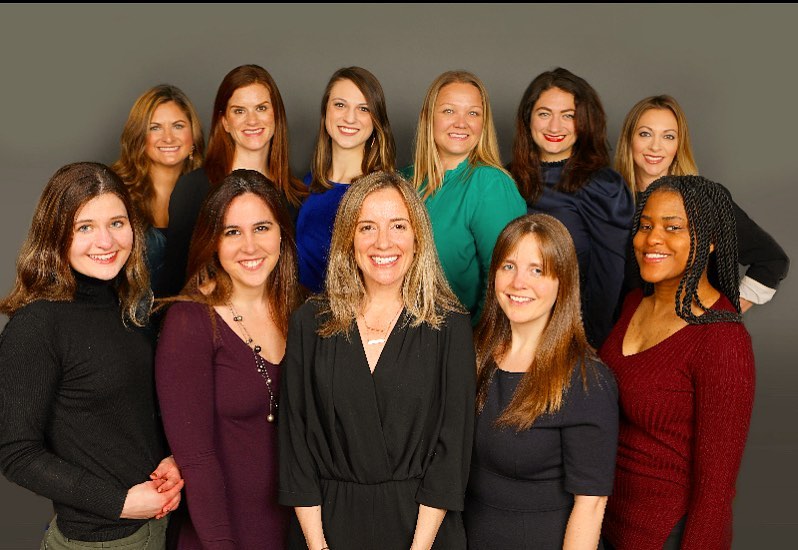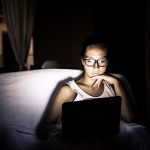
“It’s a nightmare.”
Until recently, Annie Pace Scranton was singing a far happier tune as she eagerly anticipated a return to the firm’s New York City office for herself and her staff — albeit a modified one. The plan, says the founder of Pace Public Relations, was to have each of her 12 employees in-office two days per week to provide everyone with a bit of normalcy along with the safety of social distancing.
It’s a hope that was shared by many non-essential businesses (including The Story Exchange) that shut down during the first chapters of the pandemic and had yet to reopen: a homecoming to the office this September to work face-to-face again, at least part of the time.
But now, with the more contagious Delta variant of Covid-19 to consider, and cases surging once more — at alarming rates — many businesses are shifting plans. Again. Big businesses like Uber, Google, Amazon, Apple and Starbucks have announced plans to postpone return dates until next year. Smaller companies are following suit.
Scranton admits that “it’s not looking good” for her previous plan. She intends to wait until just before Sept. 15, the date she’d set for the big return, to make a final call. But with the variant to worry about, plus recommendations to put mask and rapid-testing mandates in place ahead of in-office work days, a smooth transition back “just doesn’t seem like a reality.”
And that’s not all she’s concerned about. “I’m a mom, and many on our team are … bracing ourselves for the all-but-certain near future of Covid outbreaks, quarantining” and more.
When the Delta variant became the dominant strain of Covid-19 in the United States over the summer, a meme took hold of the internet — one that attempted to make light of the variant’s significant negative effects on everyone’s fall plans. Here’s one example of it:
Its actual impact is no laughing matter, however. With just over 50 percent of the nation’s adult population fully vaccinated — and children under 12 still unable to receive a vaccine at all — the variant has been able to spread rapidly throughout the nation, infecting younger portions of the population than the original strain and resulting in more severe illness.
It’s a massive problem — Covid-19 case rates were 316 percent higher this year than they were last Labor Day weekend. And if vaccination rates and mask-wearing habits don’t improve, experts predict that 100,000 more people could die of Covid-19 between now and Dec. 1.
For the women entrepreneurs who envisioned welcoming employees back this fall — when concepts such as “gathering in offices” and “sending children back to school” were significantly less fraught — all of this has resulted in a mad dash to figure out what’s best and safest for all, in a return to “if,” and “should I even,” instead of “when.”
Tension, Uncertainty and an Air of ‘F*ck It’
Susan Johnston, founder of the New Media Film Festival, is one of scores of women business owners living this reality.
She and her team continue to mostly meet online, for safety’s sake, though they do gather on occasion at restaurants with outdoor seating or in parks. But in more optimistic times, they had planned to return to hosting their namesake Los Angeles event in person this year. When Johnston recently asked attendees what they would be more comfortable with, though, all but two — out of several hundred — wanted the event to be virtual.
Johnston attributes a healthy portion of their hesitance to uncertainty around how best to avoid contracting or spreading Covid-19 as vaccinated individuals living amid a variant strain of the virus — as well as a lack of trust in others across the board. “Who is vaccinated? Who is not? Is the vaccination card legit? We could ask them to sign an attestation that their card is legit, but at the end of the day, we do not want to risk lives.”
Plus, “it seems people have individual definitions of what 6 feet is, what wearing a mask is, etc.,” Johnston adds. “Tensions are high … all around.”
Her observation speaks to one unique new hurdle in gathering others together: Americans’ overall waning ability to rely upon one another as the pandemic drags on. A Pew Research Center poll conducted earlier this year finds that the majority of people in the U.S. think individuals are looking out for themselves first, before others. Nearly half of those surveyed also admitted that they feel most other people cannot be trusted.
It’s yet another layer of complexity to navigate as women business owners consider what to do with their employees, in a situation rife with them. Linda Chavez, founder of Seniors Life Insurance Finder, also feels that “uncertainty is back.” Her plans for a full return-to-office have, like others, been put off — instead, her 10-person staff will work in a hybrid model that keeps the Los Angeles office at 50-percent capacity at all times. And, she adds, “Only employees who are vaccinated are allowed to continue working [on premises], with the exception of those who can not get vaccinated due to having severe health problems.”
Also exacerbating the problem for these business owners? The growing reluctance among America’s workforce to return to the office at all, and a groundswell against the very concept of a 40-hour work week. And then, of course, there’s the precarious nature of sending children back to schools and daycares as, around the country, districts are already shutting down due to Covid-19 exposures just days after starting up in-person school years.
Beyond obvious, understandable concerns for the well-being of their children, if students get sent back home to learn, women entrepreneurs will be impacted the most, a recent Kauffman Foundation report says. “Self-employed women report spending more time, on average, on childcare activities and less time in paid work compared not only to self-employed men, but also to employed women and men,” researchers found. But their women employees will feel a significant additional burden, too — especially if they are women of color.
And as business owner Beret Loncar has discovered, finding reliable, in-home childcare — if you can afford it, which many cannot — is near-impossible, too. “There are apparently none in all of New York City. And if you find one, your neighbor will steal them.”
Childcare is just one of several major problems Loncar is now facing. She, too, mandated vaccines at her business, Body Mechanics Orthopedic Massage — and anticipates losing several of her 11 employees over it. Indeed, “Covid certainly has thrown a wrench [into things] — the giant kind, possibly for some farming equipment,” she says.
She adds that she’s essentially thrown her hands up in response to the mounting problems brought on by the Delta variant. Already, she’s lost a small fortune, paying salaries in 2020 despite being closed (to the tune of about $70,000) and investing in new, costly marketing campaigns this year to bring customers back through her doors.
“It is reckless, it is impulsive and I do not care,” she says. “F*ck it — it’s my company and I can do what I want.”
Trying to Make it Work: a Sisyphean Task
The cost of Covid-19 for small businesses was significant to begin with — massive, even, as one study found. Federal relief options are available, but the financial toll was too great for many. In all, a third of American small businesses have closed, either temporarily or permanently, because of the pandemic.
Now, as women entrepreneurs dash to reconfigure things in light of the Delta variant’s ongoing spread, plenty are finding, like Loncar, that money (as well as creativity) will figure big in making it work.
Ashley Baptiste, founder of Wayne, Pennsylvania-based Utility Events, which coordinates trade conferences around the country, has been in business for over 15 years. She admits that 2020 gave her company a chance to grow its virtual offerings in ways she’d never imagined. But now, “the recent rise in cases and the Delta variant have made ‘getting back to normal’ impossible.”
In addition to changing up how she gathers her own 5-person team, she’s also had to add virtual components to many upcoming events to accommodate those who are no longer comfortable attending in person — which is much easier said than done. “The equipment we need to rent [to make that possible] is at an almost insurmountable expense.”
Other events, meanwhile, have been shifted so that they will only take place online — a costly move in cancellation fees alone. “It’s frustrating,” she concedes.
In addition to the financial cost, there’s also the mental and emotional toll of having to revert back to mostly online meetings — even for solopreneurs. Tara Dupuis, founder of a styling consultation business in Palm Springs, California, that bears her name, has “chosen to divert most of my work to virtual services” in light of the Delta variant.
She’s also masking up for the few occasions she does see clients offline. “I really look forward to when it is safe to work in person with no restrictions again,” Dupuis says. “I think we are all experiencing a bit of ‘video-call fatigue.’”
Research bears this out. Simply put, staring at one another is unnatural, and online meetings force us to do precisely that. Still, say women business owners, it’s far better than any alternative that endangers workers.
Maria Del Mar Gomez, co-founder of adaptive-wear company Mighty Well in Newport, Rhode Island, certainly prefers working face-to-face. “I find that is how I get my best work done. And more than anything, I was looking forward to the return to ‘normalcy,’” she says. “However, more importantly, I want to ensure the safety of our community, both for our customers and employees.”
So they, too, are limiting the amount of people allowed in the office at a given time, while also putting mask mandates and other restrictions in place to ensure everyone’s well-being. But plenty of plans — from the products they anticipated improving, to the healthcare conferences they were set to attend — have been put on hold. For now, they’re churning out masks to meet rising demand, “to make sure we support our community [of disabled and immunocompromised customers] and provide them with the best possible products to keep them safe and healthy.”
But while these women business owners are dedicated to everyone’s wellness above all else, the deep frustration of having to, once more, create emergency pandemic plans weighs heavy. Heavier than before, even, as something akin to the familiar had actually felt within grasp — only for it to be ripped away by wholly avoidable circumstances.
As Loncar laments: “Essentially any time we recover a little, we get hit again with something new.”





